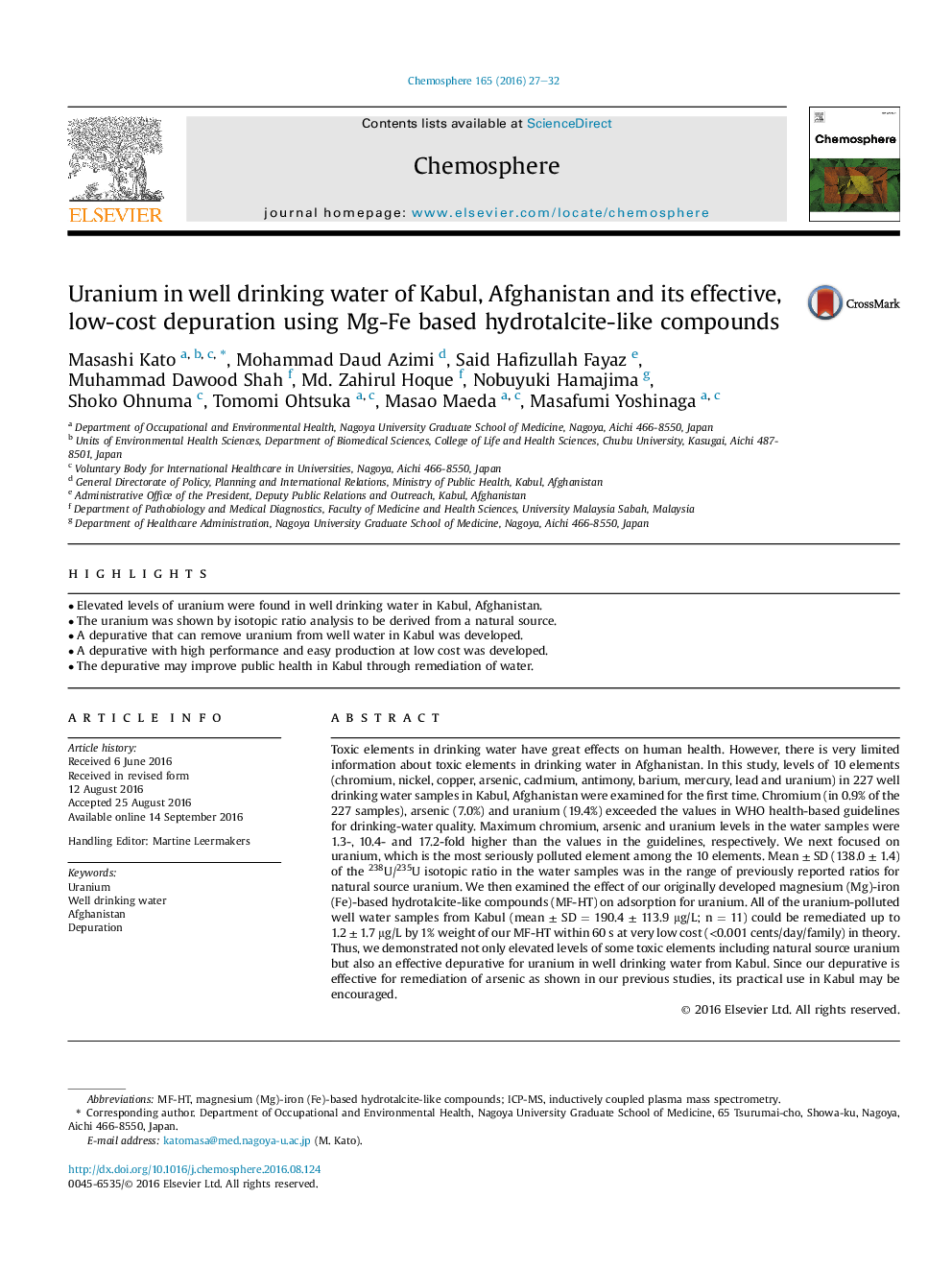| Article ID | Journal | Published Year | Pages | File Type |
|---|---|---|---|---|
| 4407286 | Chemosphere | 2016 | 6 Pages |
•Elevated levels of uranium were found in well drinking water in Kabul, Afghanistan.•The uranium was shown by isotopic ratio analysis to be derived from a natural source.•A depurative that can remove uranium from well water in Kabul was developed.•A depurative with high performance and easy production at low cost was developed.•The depurative may improve public health in Kabul through remediation of water.
Toxic elements in drinking water have great effects on human health. However, there is very limited information about toxic elements in drinking water in Afghanistan. In this study, levels of 10 elements (chromium, nickel, copper, arsenic, cadmium, antimony, barium, mercury, lead and uranium) in 227 well drinking water samples in Kabul, Afghanistan were examined for the first time. Chromium (in 0.9% of the 227 samples), arsenic (7.0%) and uranium (19.4%) exceeded the values in WHO health-based guidelines for drinking-water quality. Maximum chromium, arsenic and uranium levels in the water samples were 1.3-, 10.4- and 17.2-fold higher than the values in the guidelines, respectively. We next focused on uranium, which is the most seriously polluted element among the 10 elements. Mean ± SD (138.0 ± 1.4) of the 238U/235U isotopic ratio in the water samples was in the range of previously reported ratios for natural source uranium. We then examined the effect of our originally developed magnesium (Mg)-iron (Fe)-based hydrotalcite-like compounds (MF-HT) on adsorption for uranium. All of the uranium-polluted well water samples from Kabul (mean ± SD = 190.4 ± 113.9 μg/L; n = 11) could be remediated up to 1.2 ± 1.7 μg/L by 1% weight of our MF-HT within 60 s at very low cost (<0.001 cents/day/family) in theory. Thus, we demonstrated not only elevated levels of some toxic elements including natural source uranium but also an effective depurative for uranium in well drinking water from Kabul. Since our depurative is effective for remediation of arsenic as shown in our previous studies, its practical use in Kabul may be encouraged.
